News
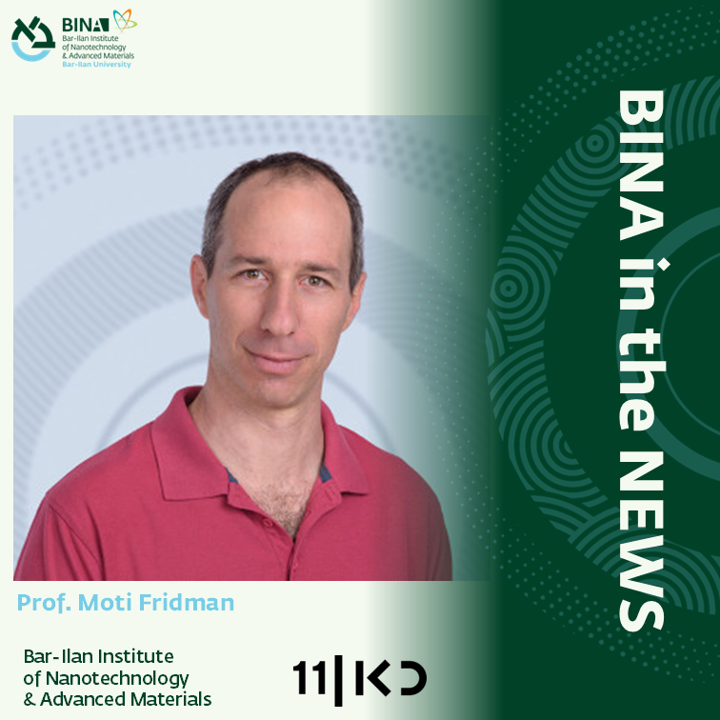 Prof. Moti Fridman from the Institute of Nanotechnology and Advanced Materials and the Faculty of Engineering was interviewed on the science program "Three Who Know" on Kan.
Prof. Moti Fridman from the Institute of Nanotechnology and Advanced Materials and the Faculty of Engineering was interviewed on the science program "Three Who Know" on Kan.
Prof. Fridman’s new research, recently published in Nature Communications, sheds light on how human networks adapt and find new stable states under changing conditions, such as conflicts, climate change, or disasters.
Please read his article: https://rdcu.be/dYzn2
and listen to his fascinating explanations and the implications of his research: https://lnkd.in/deaikTrk
D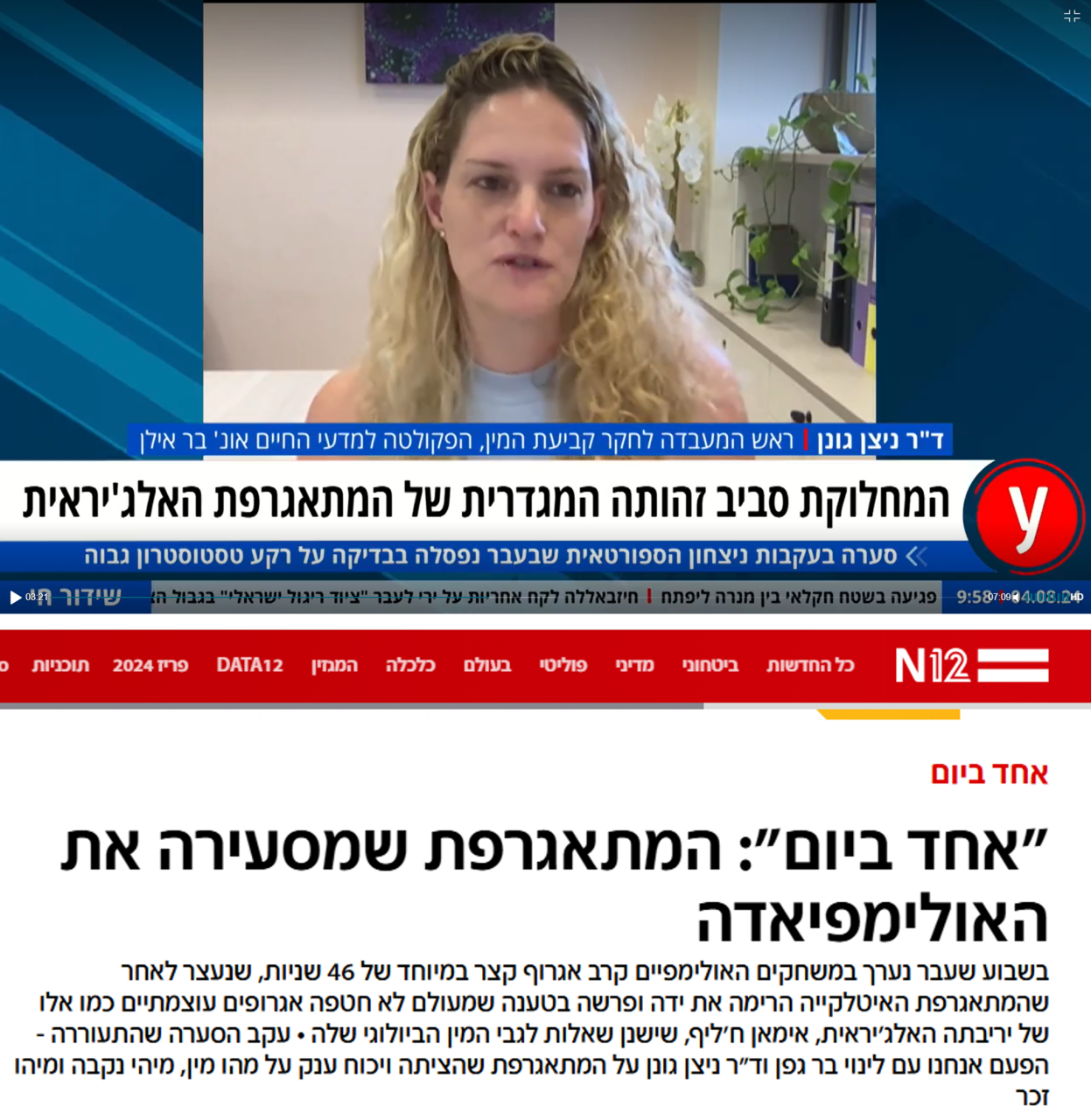 r. Nitzan Gonen was interviewed by YNET News and the "One a Day" podcast of Channel 12 News about the controversy surrounding the gender identity of the boxer from Algeria.
r. Nitzan Gonen was interviewed by YNET News and the "One a Day" podcast of Channel 12 News about the controversy surrounding the gender identity of the boxer from Algeria.
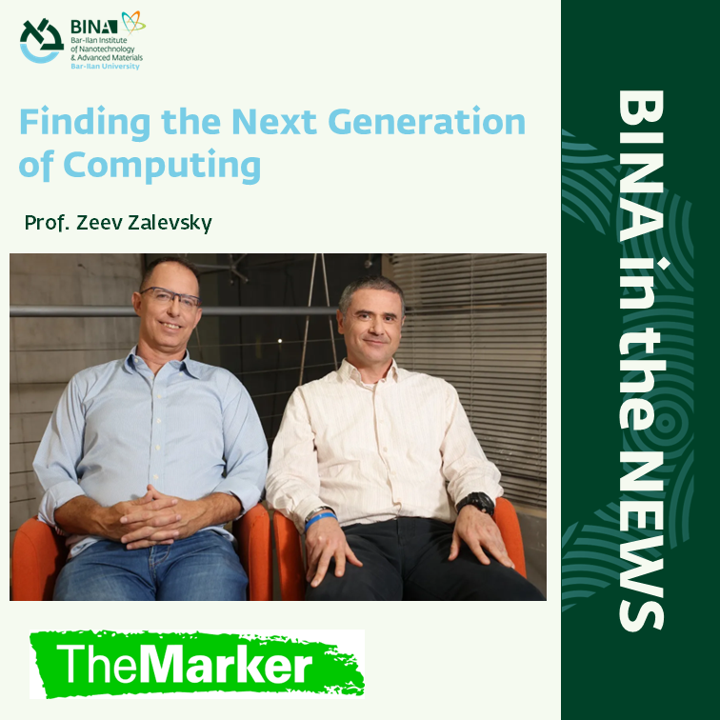 A recent article in TheMarker features an insightful interview with Prof. Zeev Zalevsky, the Dean of the Faculty of Engineering at Bar-Ilan University and Bar Ilan Institute for Nanotechnology and Advanced materials (BINA), Bar Ilan University. Prof. Zalevsky, along with his partners, has established an innovative startup leveraging cutting-edge technologies developed at Bar-Ilan University and The Hebrew University of Jerusalem.
A recent article in TheMarker features an insightful interview with Prof. Zeev Zalevsky, the Dean of the Faculty of Engineering at Bar-Ilan University and Bar Ilan Institute for Nanotechnology and Advanced materials (BINA), Bar Ilan University. Prof. Zalevsky, along with his partners, has established an innovative startup leveraging cutting-edge technologies developed at Bar-Ilan University and The Hebrew University of Jerusalem.
This startup is a testament to the incredible potential of academic research and collaboration, transforming groundbreaking scientific discoveries into real-world applications. We're proud to see our faculty leading the way in technological advancements and entrepreneurial spirit.
Check out the full interview to learn more about the journey and vision behind this pioneering venture-
https://lnkd.in/ddU62TcX
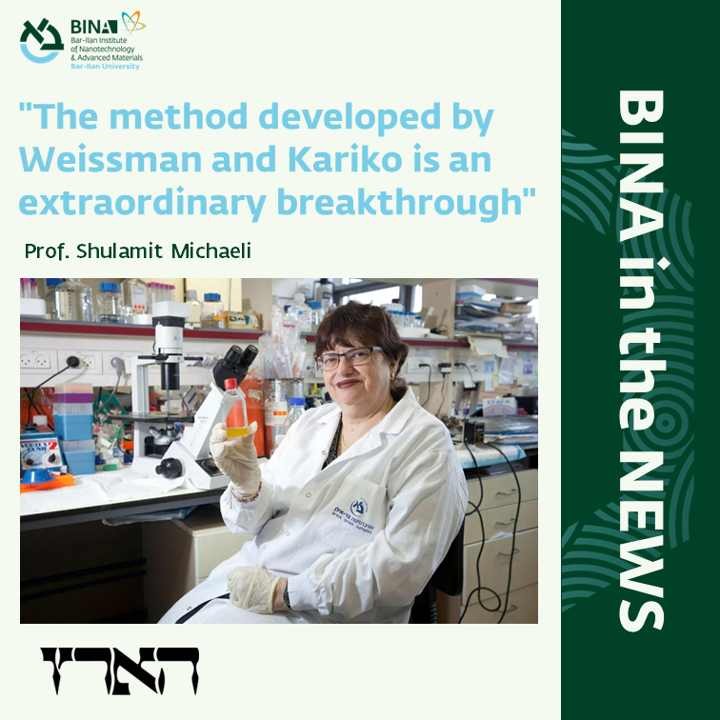 Prof. Shulamit Michaeli, Vice President for Research Bar-Ilan University, and Bar Ilan Institute for Nanotechnology and Advanced materials (BINA), Bar Ilan University was interviewed for an article in Haaretz Magazine about Nobel Prize Laureate- Drew Weissman.
Prof. Shulamit Michaeli, Vice President for Research Bar-Ilan University, and Bar Ilan Institute for Nanotechnology and Advanced materials (BINA), Bar Ilan University was interviewed for an article in Haaretz Magazine about Nobel Prize Laureate- Drew Weissman.
https://lnkd.in/d-9CequY
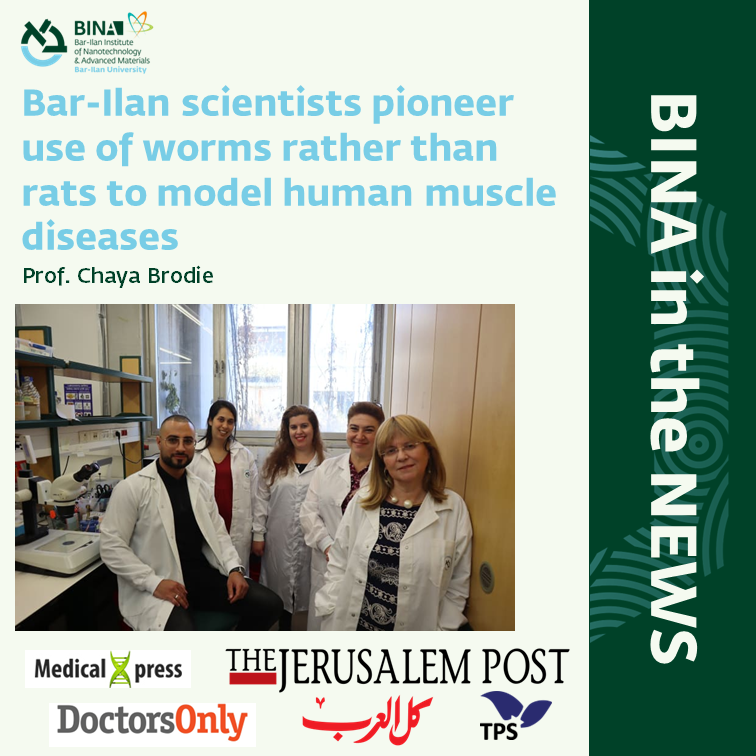 Exciting news from the Institute of Nanotechnology and Advanced Materials (BINA) was published in Israeli and foreign media.
Exciting news from the Institute of Nanotechnology and Advanced Materials (BINA) was published in Israeli and foreign media.
The research team, led by Prof. Chaya Brodie from the Institute of Nanotechnology and Advanced Materials (BINA), Prof. Sivan Korenblit from BIU, along with Dr. Amir Dori from Sheba Medical Center, developed a novel platform to model human muscle diseases using the Caenorhabditis elegans (C. elegans) worm, a tiny nematode used to understand biological processes. This innovation enables versatile, scalable disease studies and paves the way for personalized disease modeling approaches.
The study, funded by the Israeli Ministry of Innovation, Science, and Technology, was recently published in Disease Models and Mechanisms.
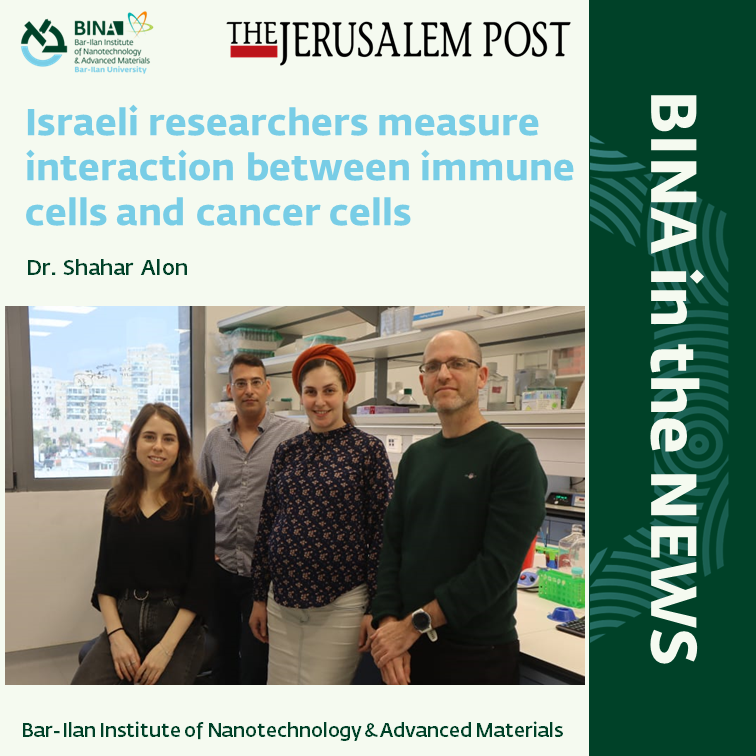 A groundbreaking study conducted by Dr. Shahar Alon from the Institute of Nanotechnology & Advanced Materials was published in "The Jerusalem Post."
A groundbreaking study conducted by Dr. Shahar Alon from the Institute of Nanotechnology & Advanced Materials was published in "The Jerusalem Post."
This research, which will help oncologists and other medical professionals to determine the best way to help patients, was funded by the Israel Cancer Association (ICA).
The work was reported in the scientific journal RNA titled "Computational analysis of super-resolved in situ sequencing data reveals genes modified by immune-tumor contact events."
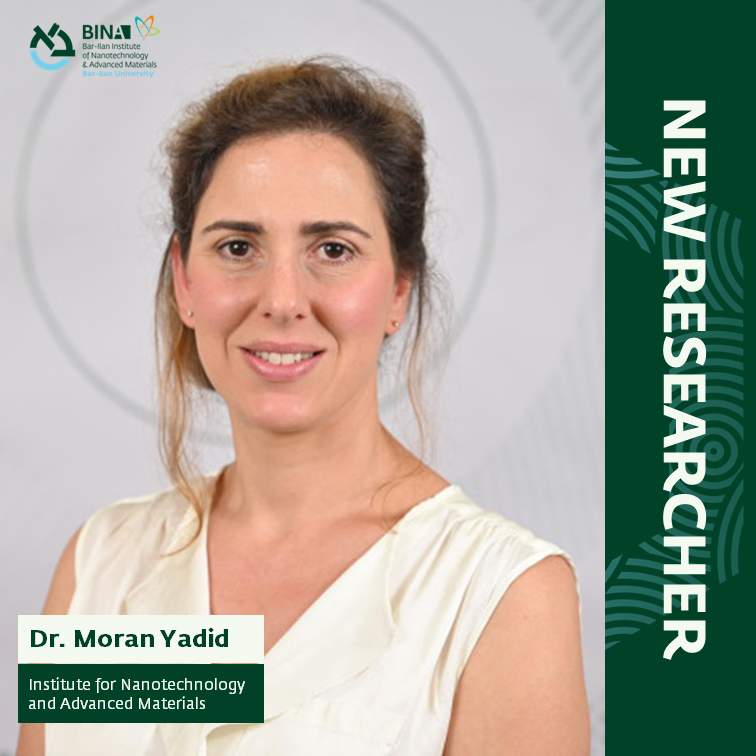 Meet our new researcher in the institute of Nanotechnology and advanced materials- Dr. Moran Yadid
Meet our new researcher in the institute of Nanotechnology and advanced materials- Dr. Moran Yadid
Moran did her bachelor and PhD degrees at the Faculty of Biomedical Engineering at the Technion.
In her PhD Moran studied control mechanisms of cardiac contraction and how the load on the heart determines the kinetics of the contractile filaments. Her studies included theoretical analysis, mathematical modeling, and experimental work on isolated cardiac fibers.
Moran did her postdoc at Harvard SEAS, where she worked on developing instrumented "Heart on Chip", which is engineered cardiac tissues that recapitulate the structure and function of the native heart, with embedded sensors to monitor their contractile function. Moran used the "Heart on Chip" to study interactions between endothelial cells, lining the blood vessels, and the heart cells. In her research Moran revealed that extracellular vesicles secreted by the endothelium contain biological cargo that modulates the cellular response to stress and protects tissues from metabolic stress.
Research Fields: Bioengineering, Regenerative Medicine, Human Organs-on-chips, Extracellular vesicles, Cardiovascular physiology and disease, Cellular stress.
In her lab Moran uses organs-on-chips, which are advanced in vitro models based on human cells, to study organ-organ interactions in health and disease.
Moran expandes: “We use tissue engineering and stem cells technology to build the components of the cardiovascular system, this allows us to study the roles of the endothelium in regulating tissues function under various conditions.
We study extracellular vesicles (EVs) and how they modulate cells and tissues' response to stress (e.g. Ischemia and reperfusion injury), with the goal of developing novel bio-inspired therapeutics.
My lab is a multidisciplinary lab, I employ engineering, biology and material sciences to study human physiology and to develop new approaches for regenerative medicine.
Awards-
Moran recently received ISF funding to develop a human diabetic heart on a chip to study the relations between endothelial dysfunction and tissues response to injury in diabetes.
Moran’s lab also been awarded funds from MOST for drug repurposing to treat AL amyloidosis, using an "organ o chip" approach, and for developing engineered muscle grafts for oral cancer patients undergoing glossectomies.
Moran has been awarded the 2023-2024 Zuckerman Faculty Scholars Award.
“My personal goal is to conduct translational research that will produce an impact on human health and understanding human physiology in health and disease. I believe that significant progress necessitates close collaborations to bring together multiple knowledge and skill sets”
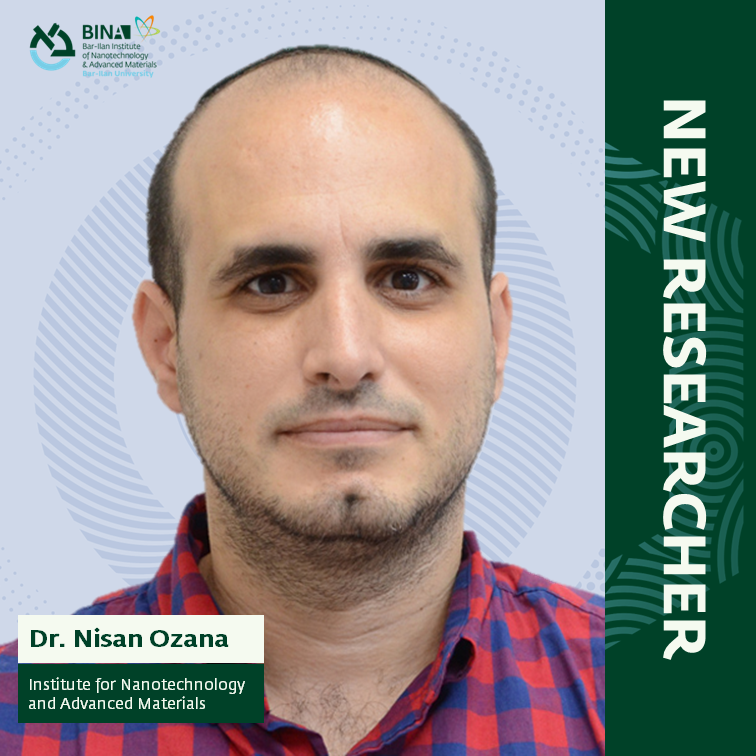 Meet our new researcher in the institute of Nanotechnology and advanced materials- Dr. Nisan Ozana
Meet our new researcher in the institute of Nanotechnology and advanced materials- Dr. Nisan Ozana
Dr. Nisan Ozana served as a postdoctoral research fellow at Harvard Medical School and Massachusetts General Hospital between 2019 and 2022. His expertise in the biphotonics and the neurophotonics field has earned him several awards, such as the Japanese Researcher Mobility Award, the Wolf Foundation Scholarship for Outstanding PhD Students, the Prof. Rahamimoff Award for Young Scientists from the US-Israel Binational Science Foundation (for his research in collaboration with the Brain Function Laboratory at Yale University), and the Prize4Life Award.
In 2022, Dr. Ozana joined as an assistant professor in the Faculty of Engineering at Bar University, Israel.
Nisan completed his PhD in 2019 from the Faculty of Engineering at Bar Ilan University, Nisan's neuroengineering research focuses on developing advanced acoustical and optical neuroimaging methods to understand the brain's neural circuitry and fundamental mechanisms in "real environment". These methods have significant potential in brain-computer interfaces and clinical studies.
Nisan combines cutting-edge Electrical Engineering and Neuroimaging techniques, including single photon sensing, superconductive sensing, machine learning, FPGA design, nanoelectronics, biomedical sensing, and neuroimaging
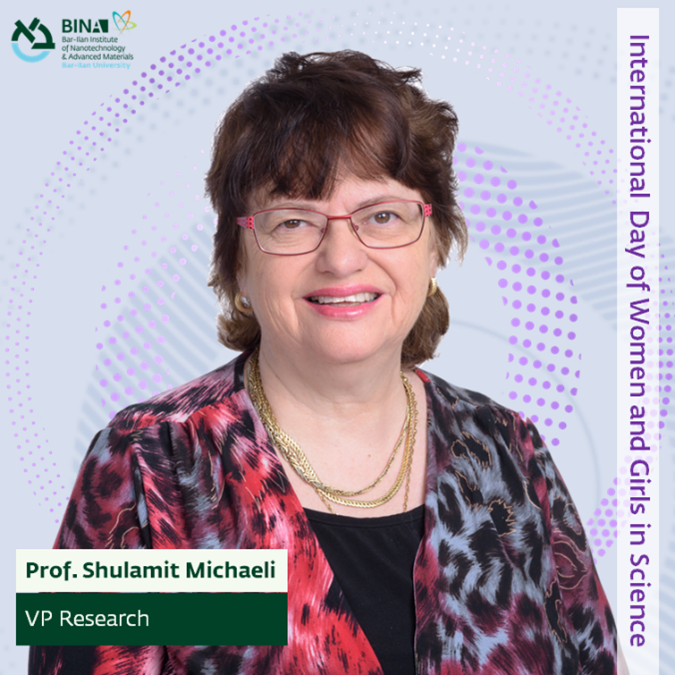 In honor to Women's Day in Science , we would like to highlight our elite female researchers.
In honor to Women's Day in Science , we would like to highlight our elite female researchers.
See their insights from their personal experience-
Prof. Shulamit Michaeli
Can you share a key lesson you've learned in your career?
The key lesson work hard!! If something does not work for you or for your students think, read and try to understand the problem.
Work even harder!
Never give up!
When a paper or a grant is rejected…sleep on it… and then open a white page and start over again. Be optimistic!
Do what you love to do. Enjoy the moments of success!
What is the most rewarding aspect of your work for the nano institute?
The most rewarding aspect is the friendly atmosphere that made me collaborate with many members…that I came to know many great students. That I started to actually work in the nano-field that resulted in many grants and papers.
What advice would you give to young women interested in a career in Innovation and Research?
Go with your dream…
אם תרצו אין זו אגדה
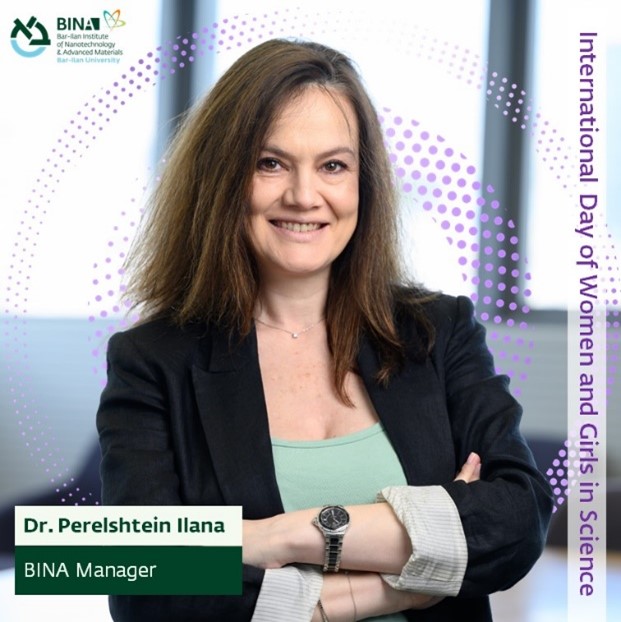 In honor to Women's Day in Science , we would like to highlight our elite female researchers.
In honor to Women's Day in Science , we would like to highlight our elite female researchers.
See their insights from their personal experience-
Dr. Ilana Perelshtein
Can you share a key lesson you've learned in your career?
Never say “not possible “ to any idea, try to do it and see if the vision will come true
What is the most rewarding aspect of your work for Nano institute ?
Taking an idea developed at the laboratory to industrial scale-up implementation.
What advice would you give to young women interested in a career in Innovation and Research?
Be experienced in different fields, focus on multidisciplinary approach
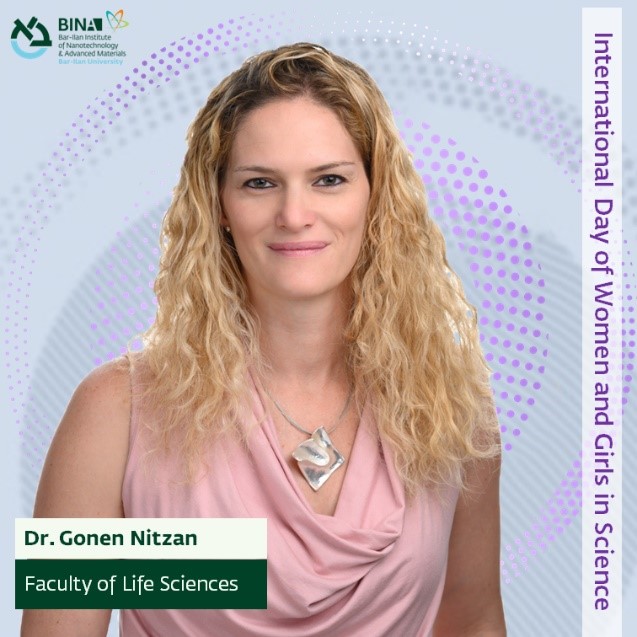 In honor to Women's Day in Science , we would like to highlight our elite female researchers.
In honor to Women's Day in Science , we would like to highlight our elite female researchers.
See their insights from their personal experience-
Dr. Nitzan Gonen
Can you share a key lesson you've learned in your career?
That you should try your best, and in most cases, it will be good enough. Also, that the best results come “by mistake” from things that you lease expect from.
What is the most rewarding aspect of your work for the nano institute?
To be able to perform excellent science while nurturing the next generation of excellent scientists.
What advice would you give to young women interested in a career in Innovation and Research
I think it is important to delve into the research to really understand how research is being done and how we “think science”. Then you can zoom out to see how we can translate the findings we find in the lab for more innovative and translational aspects.
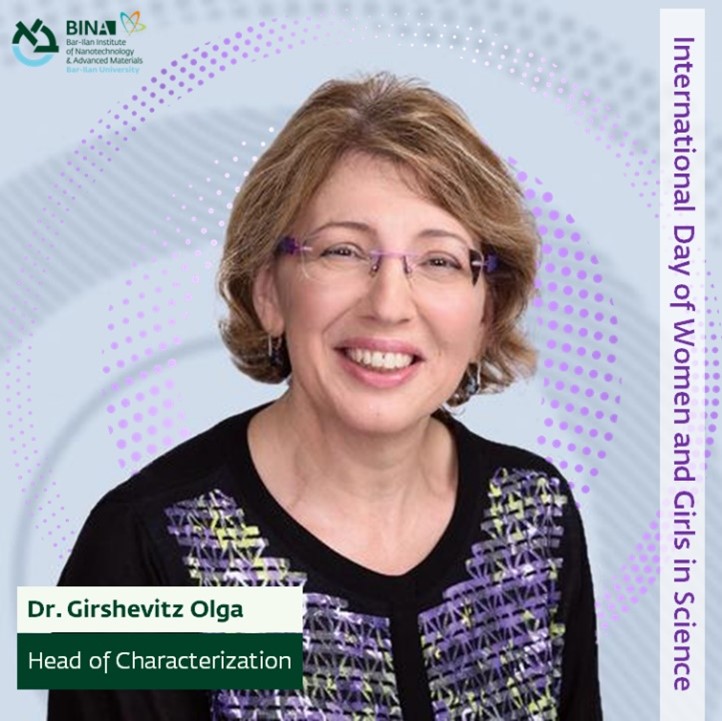 In honor to Women's Day in Science , we would like to highlight our elite female researchers.
In honor to Women's Day in Science , we would like to highlight our elite female researchers.
See their insights from their personal experience-
Dr. Girshevitz Olga
Can you share a key lesson you've learned in your career?
Stubbornness, determination, and self-integrity pay off. Difficulties can spur you on to take the giant step
What is the most rewarding aspect of your work for the nano institute?
Multidisciplinary creative space for individuals to share and explore various ideas without fear of unnecessary restrictions.
What advice would you give to young women interested in a career in
Acquiring knowledge is the most valuable investment in oneself. Once obtained, remain steadfast in your convictions and don't give up. In the end, it pays off
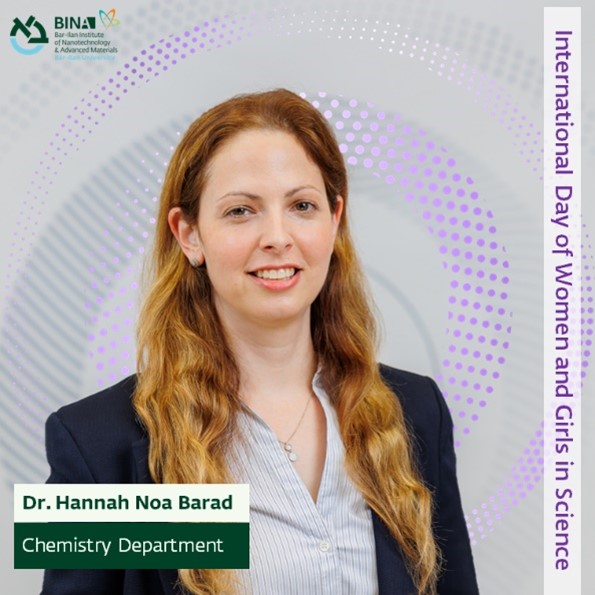 In honor to Women's Day in Science , we would like to highlight our elite female researchers.
In honor to Women's Day in Science , we would like to highlight our elite female researchers.
See their insights from their personal experience-
Dr. Hannah-Noa Barad
Can you share a key lesson you've learned in your career?
Don't doubt your knowledge and abilities even if someone tells you otherwise. Believe in yourself.
What is the most rewarding aspect of your work for BINA?
The most rewarding aspect of my work in the Nano Institute is definitely the interdisciplinary aspect. It is great to be able to walk down the hall and get some advice from a person in a different scientific field. Getting an idea on your research from a totally different angle is priceless.
What advice would you give to young women interested in a career in Innovation and Research?
Follow your dreams and aspirations, don't think that you cannot do something just because of social conventions. Think outside the box and you will get far.
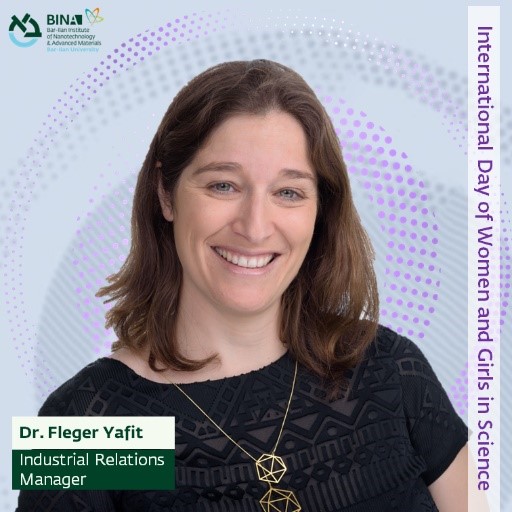 In honor to Women's Day in Science , we would like to highlight our elite female researchers.
In honor to Women's Day in Science , we would like to highlight our elite female researchers.
See their insights from their personal experience-
Dr. Yafit Fleger
Can you share a key lesson you've learned in your career?
Don’t be afraid to make changes and speak your mind
What is the most rewarding aspect of your work for the Nano institute?
The Knowledge That We Are Contributing to the Development of the Next Generation of Scientists and Inventors
What advice would you give to young women interested in a career in Innovation and Research?
Believe in yourself and your abilities, and always keep learning and developing
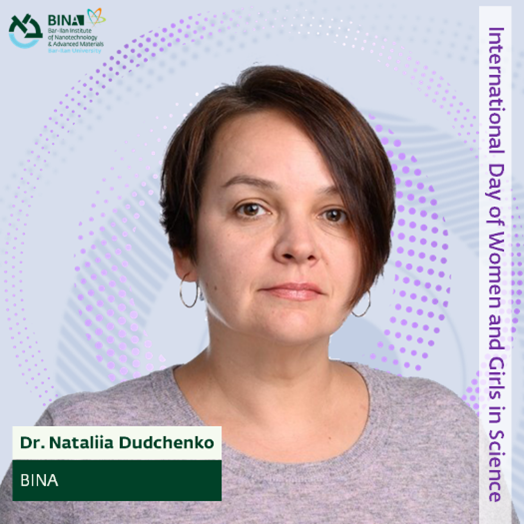 In honor to Women's Day in Science , we would like to highlight our elite female researchers.
In honor to Women's Day in Science , we would like to highlight our elite female researchers.
See their insights from their personal experience-
Dr. Nataliia Dudchenko
Can you share a key lesson you’ve learned in your career?
The world is constantly evolving, and technologies are rapidly advancing. A key lesson that I’ve learned is the importance of continuous learning and adaptability. Being open to acquiring new skills, staying updated, and adapting to change are crucial for long-term success. I believe that the ability to learn and adapt is essential for navigating challenges, seizing opportunities, and contributing meaningfully to research. Embracing a mindset of lifelong learning ensures that you remain at the forefront of your field and can adapt to emerging trends and technologies.
What is the most rewarding aspect of your work for the Nano Institute?
My work in a Nano Institute involves engaging in cutting-edge research in nanoscience and nanotechnology. We have access to state-of-the-art laboratories, cleanrooms, and advanced instrumentation, enhancing the ability to conduct high-impact research. We are involved in translating research findings into practical applications and technologies. Contributing to innovations that have real-world impact in various fields is highly rewarding. In this way, my work allows me to contribute to solutions for pressing global problems.
What advice would you give to young women interested in a career in Innovation and Research?
My advice for young women interested in a career in innovation and research is to choose the area of investigation that genuinely excites and interests them. It is important to develop a passion for learning, setting goals, and pursuing opportunities. Seek out experienced professionals, who can offer guidance, mentorship, and insights into navigating the challenges in innovation and research. Attend conferences, workshops, and networking events to connect with the professionals in your field and look for opportunities to gain hands-on experience. I believe that being proactive, curious, and open to constructive feedback can lead to personal and professional growth, which is essential for success in any career. Good Luck
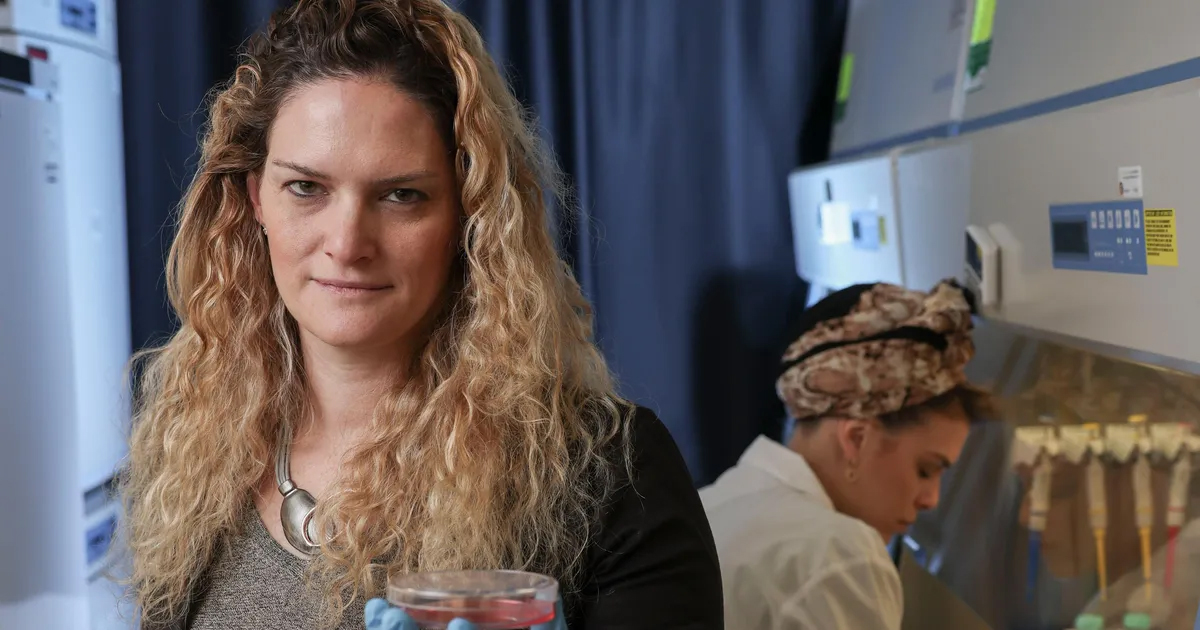 An exciting breakthrough in testicular research
An exciting breakthrough in testicular research
Dr. Nitzan Gonen, from Life sciences Faculty and Bar Ilan Institute for Nanotechnology and Advanced materials (BINA), presents in her latest article significant progress in the field of male reproductive health research by establishing the first ever organic model of the testicles. This innovative model holds enormous potential for understanding and treating disorders in sexual development and male infertility.
Nitzan’s work was published in Haaretz last weekend.
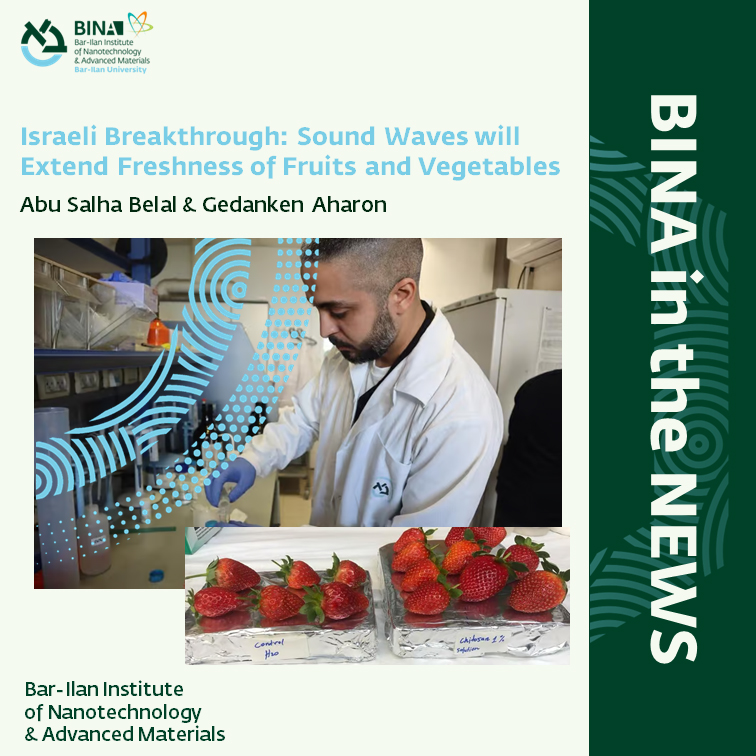 Exciting breakthrough!
Exciting breakthrough!
Researchers Abu Salha Belal & Gedanken Aharon from Chemistry Department and Institute for Nanotechnology unveiled a revolutionary method for preserving strawberries. Using sound waves in a process called sonication, they've developed a nano-particle coating from chitosan, a natural biopolymer with antibacterial properties. This innovative and eco-friendly approach not only simplifies the application process but also significantly extends the shelf life of strawberries.
The significance of Belal work was published in leading Hebrew Arab and English newspapers.
https://www.israelhayom.co.il/food/food-news/article/15266135
https://m.jpost.com/science/article-787103
https://www.kul-alarab.com/Article/1087985
https://www.knooznet.com/?app=article.show.80771
.jpg)
تطوير جديد في جامعة بار-ايلان يسمح بالحفاظ على الفواكه والخضار لمدة أطول
كنوز نت - التقنية، التي طورها طالب الدكتوراه بلال ابو صالحة، في قسم الكيمياء ومعهد النانو-تكنولوجيا في جامعة بار-ايلان
The groundbreaking research conducted by Mohammad Hamouda, a doctoral student affiliated with the Department of Chemistry and the Institute for Nanotechnology and Advanced Materials in Bar Ilan University, has resulted in the development of advanced optical sensing detectors. Working under the supervision of Prof. Adi Salomon, Hamouda's detectors exhibit the remarkable ability to detect drug derivatives even at minimal concentrations in water.
The significance of Hamouda's work was published in leading Arab newspapers in Israel, PANET & KUL AL ARAB.
طالب الدكتوراة في جامعة بار-إيلان محمد حمودة يُطور حلولًا لمشكلة تلوثات مياه الشرب kul-alarab.com
PANET | تطوير جديد في جامعة بار-إيلان يمكن من تحديد بقايا الملوثات الدوائية ومواد ملوثة اخرى في المياه
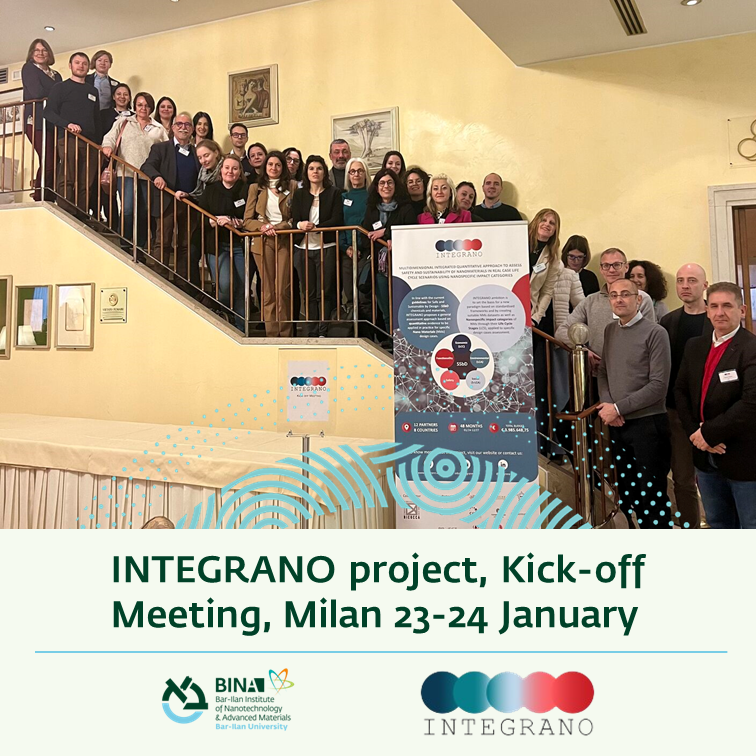
BINA is a part of the EU project, “MULTIDIMENSIONAL INTEGRATED QUANTITATIVE APPROACH TO ASSESS SAFETY AND SUSTAINABILITY OF NANOMATERIALS IN REAL CASE LIFE CYCLE SCENARIOS USING NANOSPECIFIC IMPACT CATEGORIES” (INTEGRANO), which started on January 1, 2024. The proposal was evaluated under the HORIZON-CL4-2023-RESILIENCE-01-22 call.
INTEGRANO includes 12 Partners from 8 countries (Italy, Belgium, Portugal, Israel, Spain, Bulgaria, Denmark, and Germany) and its duration is 48 months (January 2024 – December 2027).
The Kick-off Meeting of the INTEGRANO Project was held during 23rd – 24th January 2024 in Milan – ITALY. INTEGRANO's ambition is to set the basis for a new paradigm for integrated sustainability and safety assessment of nanomaterials through their life cycle stages, by delivering solutions that overcome present Safe and Sustainable-by-Design shortcomings and by filling the present gaps emerging from the state-of-the-art analysis.
BINA was represented by Dr. Nataliia Dudchenko.
Bar Ilan Institute for Nanotechnology sees great importance in promoting and supporting the industry in Israel and R&D collaborations.
https://lnkd.in/d7kqkKjM



